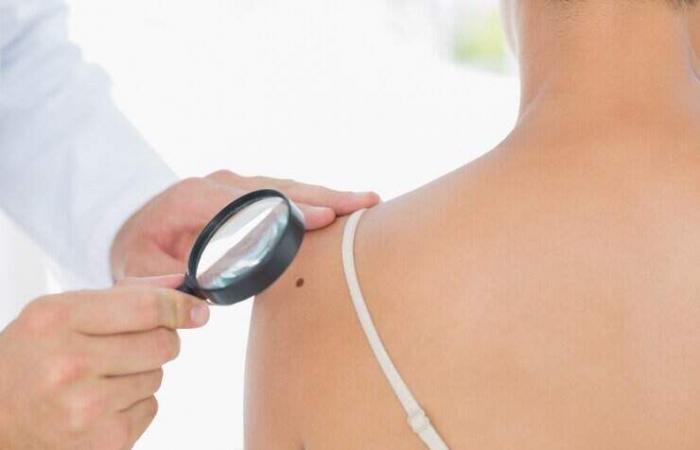A British musician has become one of the first to receive an experimental mRNA vaccine designed to prevent the recurrence of melanoma skin cancer. Steve Young, 52, who has previously had stage II melanoma removed, said the injection is his “best chance” of stopping the cancer from returning.
“I feel lucky to be part of this clinical trial,” Young said in a statement. This is phase 3 of an experimental study that has already obtained encouraging results in volunteers, and Young will join just over a thousand other people around the world who will participate in this stage.
The vaccine is called mRNA-4157, or V940. It was designed to be administered alongside the drug Keytruda (pembrolizumab), and results from earlier phases of the study showed that this combination led to a 44% reduction in cancer recurrence or death 18 months after surgical removal of melanoma.
Young and the other study participants know they will receive Keytruda. What will remain a mystery, both to them and the doctors supervising them, is whether they will receive the real vaccine or a placebo.
The development of mRNA vaccines took a huge leap forward during the Covid-19 pandemic. The pharmaceutical company Moderna – developer of one of the vaccines against Sars-CoV-2 – is behind this vaccine against skin cancer, in collaboration with another pharmaceutical company, MSD.
These types of vaccines work by giving the body’s cells a set of cues so they can get to work producing specific proteins. Against Covid, they were viral proteins that the immune system can recognize and respond to. In the case of mRNA-4137, the instructions tell the body how to react to up to 34 different proteins found only on cancer cells, called neoantigens.
What makes this so interesting is that the set of proteins can be customized for each patient. The vaccine primes the patient’s immune system against proteins that are known to play a role in their specific cancer, while Keytruda addresses another of the defenses in a two-pronged approach.
Melanoma is not the most common type of skin cancer, but according to the American Association for Cancer Research, it causes the most deaths. Rates are rising, so better treatments are needed more urgently than ever. Many people, both doctors and patients, will be watching the progress of this latest trial with great interest.
University College London Hospitals NHS Foundation Trust is leading the final phase of trials of the therapy, which scientists hope could also be used to stop lung, bladder and kidney cancer.
Steve Young told the Daily Mail that he was shocked to learn that a small lump on his head was actually melanoma.
Recalling the shock of his diagnosis, Young said he originally thought it was a death sentence. “I spent two weeks thinking ‘so this is it’,” he said. “My father died of emphysema when he was 57 and I really thought he was going to die younger than my father.”
Young said that when he was told about the trial at UCLH it “really piqued my interest”.
“As soon as they mentioned this mRNA technology that was being used to potentially fight cancer, I thought, ‘that sounds fascinating’ and I still feel the same way. I’m very, very excited. This is my best chance to stop cancer.”






